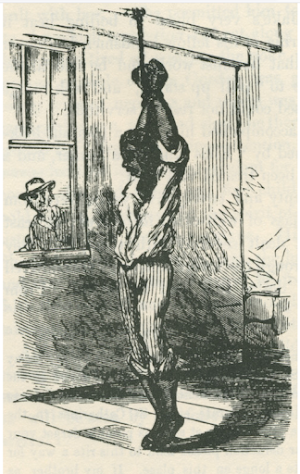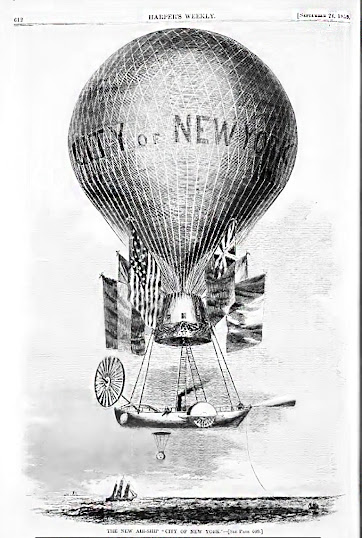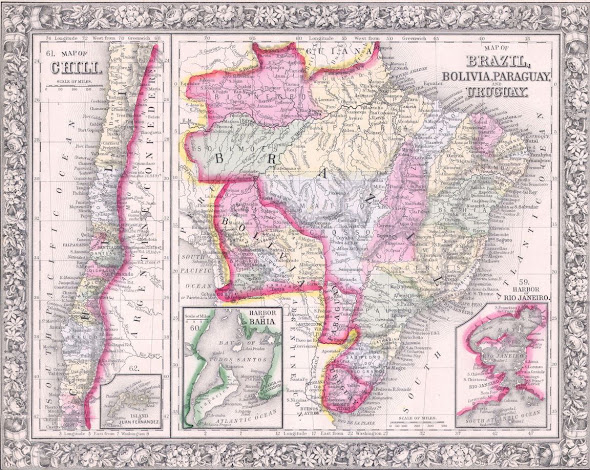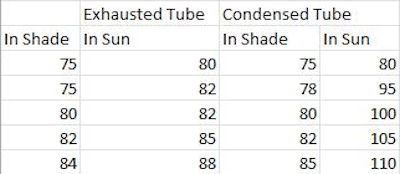A New York Lady in SC 1859
I am going to let the transcripts of several articles from the Edgefield, SC, Advertiser of March 23, 1859 speak for themselves. I have added a few notes in red to clarify terms or allusions to current events, modern readers would not understand. There is not much a decent or sane person can add otherwise, so I won't.
Edgefield SC—letter from a Northern lady of Oswego, NY
Re-Printed in the Edgefield, S.C. Advertiser,
March 23, 1859
From the Oswego Times in New York State.
The following is an extract from a private letter, by a New
York lady to her brother. She is spending the winter with an invalid daughter
in South Carolina:
AIKEN, S. C., Feb. 2d, 1859.
My DEAR BROTHER:-We are in what is called the
Pine Woods District, 120 miles west of Charleston. Aiken is a small town of not more
than 1000 inhabitants, and the dullest place I was ever in. All the work that
is done in this country is done by the slaves, and they do just as little as
they possibly can.
The houses are open and not half made, with the doors
off the hinges, and the windows won't shut; you could put your hand in the
cracks all around the sashes. The whole country has the appearance of as lazy,
shiftless, dirty, ignorant a set of beings it is possible to conceive of. They
go lounging about the streets and stores all day, a moving heap of rags, dirt
and ignorance, looking little better, and often knowing less, than the
slaves-too proud to work, and too poor to live-Mrs. Stowe's description, in Uncle Tom's Cabin,
of the poor whites of the South, is in no way over-drawn, but often fails of a
description of their destitution and ignorance. The slaves are of all colors
and shades, from the most sooty black to a perfect white. There was a waiter at
the Hotel at Charleston, who was as white as you or I, with blue eyes and
sandy hair, and not the least-appearance of African blood that I could see. I
thought him an Irishman, and my husband thought him an American; but from our host, to our
surprise, we found him to be a slave, the property of a planter a few miles
south of Charleston.
Aiken is quite a resort for consumptives. It lies on
high ground, and is surrounded by a yellow pine forest. The climate
is mild and warm, the atmosphere pure and delightful. We have been out all the
morning without cloaks or shawls. And I ought not to complain of a country that
improves my daughter's health; but, in spite of all my wishes, the
hours hang heavily upon me. We have no company except the two young ladies from
New York-the one sick and the other to take care of her,-and a
gent from Ohio, also sick and a testy old bachelor, which is worse than being sick.
This monotonous life is
occasionally broken by a negro whipping. The other day, as I was walking
down street, I saw quite a crowd of people, and soon beheld in their midst a
large, tall negro, with his arms pinioned behind him, who had been driven
twelve miles that morning by a white man: the man riding on a horse and driving
him before him, using two long ropes as we use lines to drive our horses. The
man said that the negro had started to run away, and he had caught him and
brought him back. The negro said that he belonged to a man a few miles south
and had only lost his way in the woods, and if they would let him, he would go
right home. They flogged him, put him in the Calaboose, (a Negro prison,) and
what has become of him since I do not know, but feel quite sure that they had
the ropes on the wrong man, for the negro was much the smartest looking of the
two.
Last Sunday, just after morning service, we heard a
great noise in the street, and on looking out we saw a black man trying to get
away from two white men. His face was cut and bleeding profusely. They tied his
hands behind him, ripped his back bare, took him into their store, which is nearly
opposite to our house, tied him down to the floor, and gave him fifty lashes in
the course of the next half-hour, not, all at once. After eight or ten lashes
lie groaned most piteously
at every stroke of the whip.
And all the crime that we could learn that he had committed was to prevent the black nurse from taking a whistle which he had bought and given to his boy, and giving it to his master's boy. The slave and nurse were quarreling about it when the master came home from church.
He(the master) came into the kitchen, took a moulding-board ( a wood mold, generally for butter)and broke it over the slave's head, then struck him a heavy blow with the rolling-pin. The slave rushed into the street and the noise began that attracted our attention.
I have heard many censure the master for whipping his
slave on Sunday, but not one that he was whipped so severely. While we-poor,
craven wretches that we are-have to see and hear such things, and
dare not a word-nor open our lips, in disapproval of it. I almost despise
myself for being such a coward ; but we could not do the poor slaves any good
but ourselves much harm; so we bite our lips, and keep silent before folks; but in our own rooms, we feel as valiant, and
crow as independently, as young roosters when they get upon their own dung
hill.
And this is life in the South. Here is Southern
chivalry, the aristocracy of America, the constituency of a Butler ( Pierce Butler was one of the richest men in America, a resident of Philadelphia who owned a half dozen plantations. To pay off gambling debts, Butler held the largest single auction of slaves in American history offering 436 of his slaves for sale at a huge auction March 2, 1859 in Savannah, GA, a few weeks before this lady wrote her letter. This blog will return to Butler and his spectacularly scandalous marriage and divorce from the leading actress in England and her her detailed account of how badly slaves were treated on his plantations.) and a
Brooks. But give me my Northern home, however humble. I would rather be almost
anything (except a doughface) (A doughface was slang for a Northerner supporting slavery) in the free North, than to be mistress of the
best plantation in South Carolina.
Abolitionists
in Aiken.
SEE a letter which we publish this week, taken
from the Oswego (N. Y.) Times. It was written
by a lady in Aiken to her brother at the North,
and sent by him to the said newspaper for
publication. A resident of Aiken accidentally saw
it. Upon his making it known to the citizens
generally, considerable excitement prevailed. A
certain lady was suspected. A committee consisting.
of W. P. FINLEY, General J. It. WEVER and
Dr. S. Lanley, waited on her Immediately. She
confessed the authorship of the letter and was
forthwith requested to leave the place within forty
eight hours. She left the next day for the North.
ARTHUR STIMINS, EDITOR.
The Edgefield Advertiser
THURSDAY, MARCH 23, 1859
Almost as if to refute the lady's letter, the newspaper followed the above with this article:





Comments
Post a Comment